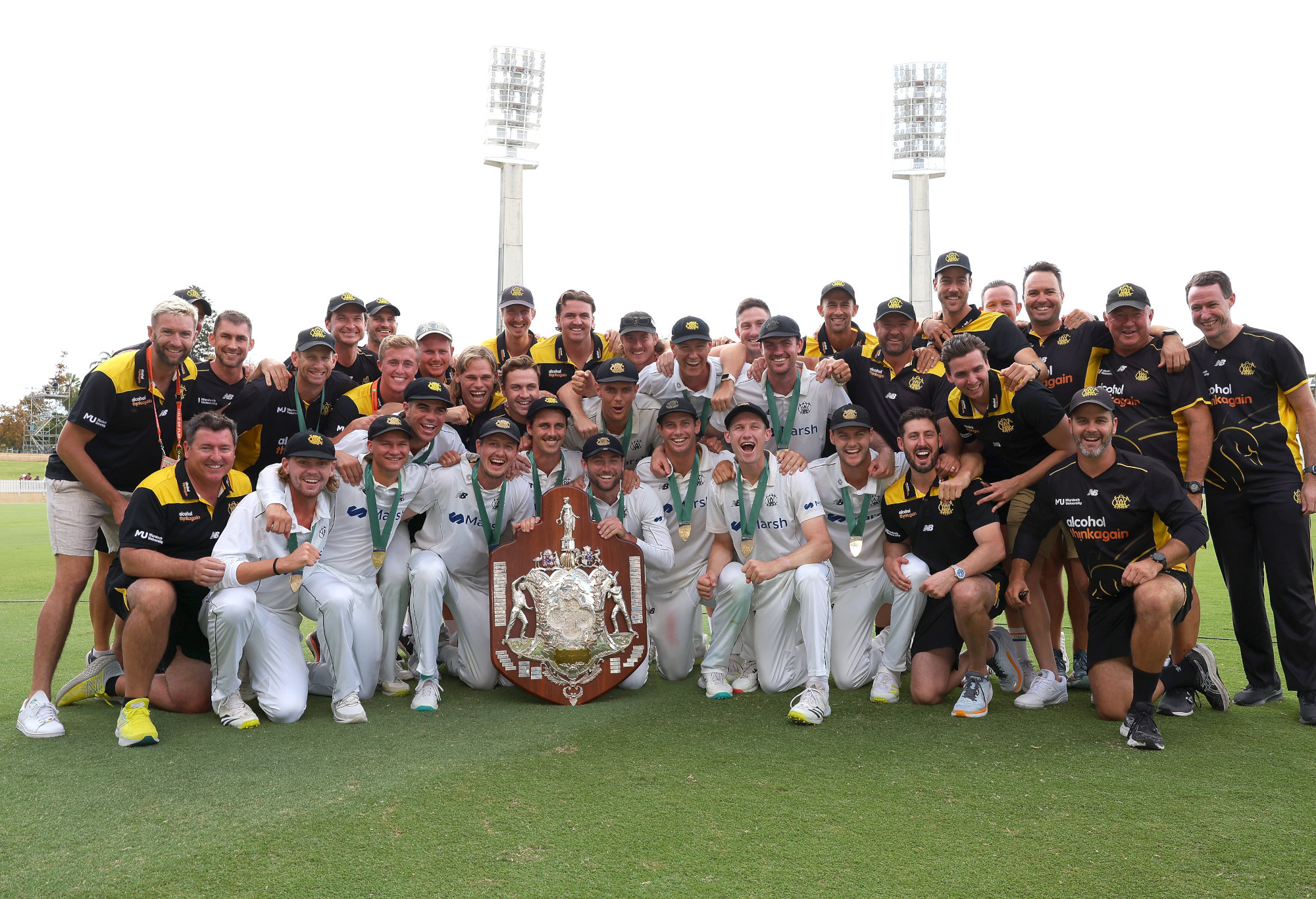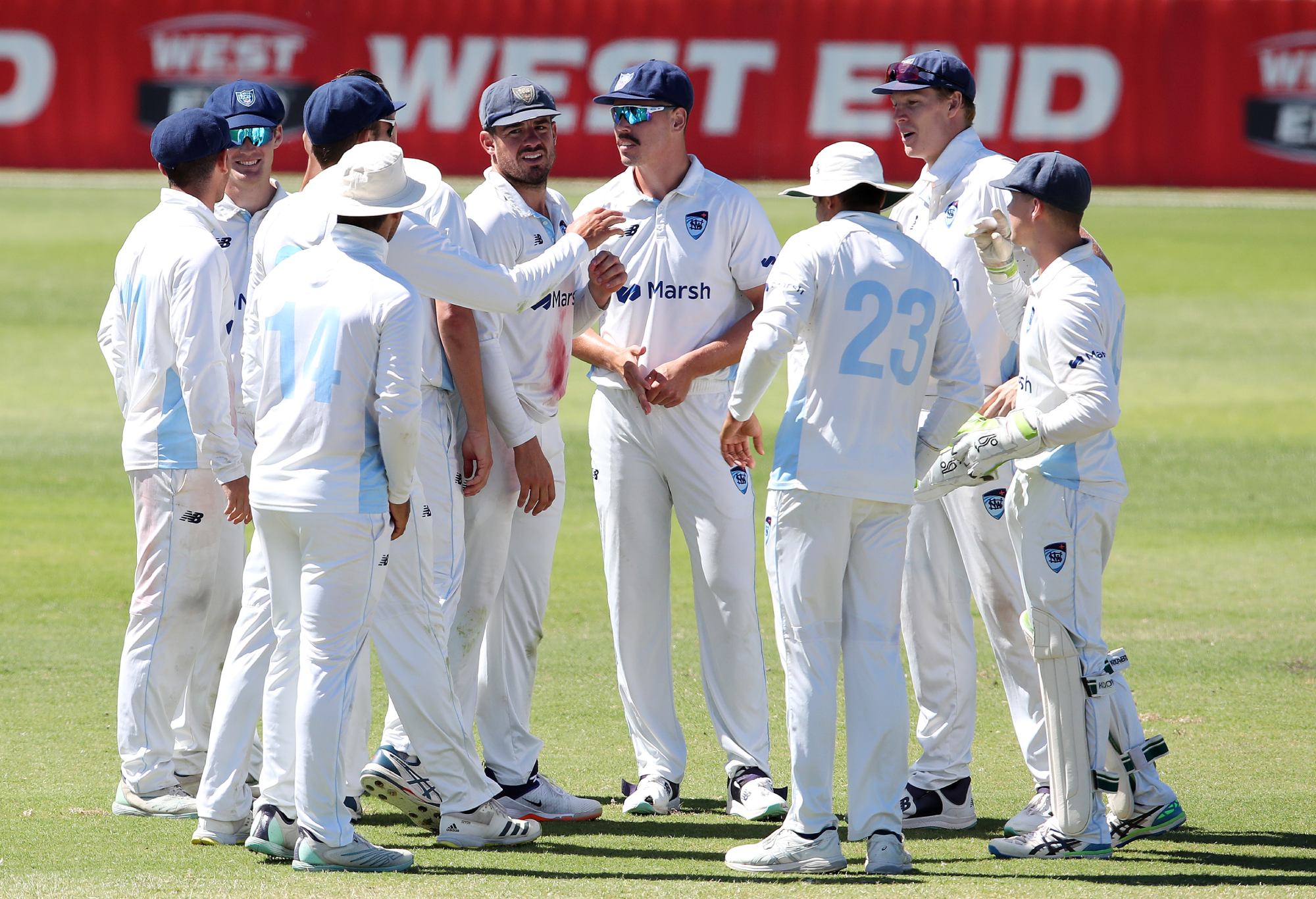'Big achievement': Jason Gillespie secures major appointment as Pakistan Test coach
Australian fast bowling great Jason Gillespie has been named head coach of Pakistan's Test team, as the nation overhauls its coaching department ahead of…
Back in the ’90s, 2000’s and even before that, Sheffield Shield cricket was a fierce competition. Featuring hard-nose cricketers such as Stuart Law, Michael Di Venuto, Andy Bichel, Brad Hodge, Simon Katich, and the list goes on.
These matches were labelled ‘Tougher than Tests’ consisting of fierce rivalries between states. The tense competitions became the breeding grounds for producing ready-made international players we enjoyed watching for years.
But now, the edge that state cricket had once before has lost its touch. Back in March, Western Australia won its second Sheffield Shield title in a row, cruising their way to victory against Victoria and highlighting that the gap between the best and worst is alarmingly significant.
South Australia has continued to struggle in the Sheffield Shield, being wooden spooners four times out of the past six seasons.
In 2021 SACA had an independent review of their operations whereby Michael Hussey gave a few frank recommendations. Hussey said, ‘Identify and try to recruit the best young talent around the country (former Australia U-19 players not contracted) and engage them through Premier Cricket, making them earn opportunities at the next level.’
Obviously one of the reasons for the Sheffield Shield, the One-Day Cup and BBL is to help produce the next generation of Australian players, however, state sides need to find a better balance. If the standard of state cricket gets stronger and young talented players have to bang the door down more, Australian cricket will be better off.

Western Australia celebrate after winning the Sheffield Shield Final. (Photo by Paul Kane/Getty Images)
Is it the best plan for state sides to play the talented kids but be uncompetitive at the same time?
After the 2018/19 summer, Victorian Cricket won the equivalent of a soccer treble, winning the Shield final against New South Wales, the One-Day Cup against Tasmania and both Melbourne-based Big Bash League franchises competed in the final.
When the season finished, Cricket Victoria decided to stop the two franchises’ independence and take full control of them. After the Renegades’ title-winning season, they were labelled a ‘development squad’ winning a measly 10 games out of their next 42 and finishing last three years in a row.
During those dour years there were some questionable list management decisions and team selections. Some would say many young Victorian players were gifted games even when they weren’t earned on merit.
In Jake Fraser-McGurk’s 24 batting innings in the BBL, he has averaged only 13.29 with a high score of just 40. Indeed, Jake Fraser-McGurk is an extremely talented cricketer with bat and in the field, but it is hard to say he earned the spot averaging just 25.25 in Premier cricket.
Will Sutherland is another who had a breakout summer for the Renegades last summer, but previously struggled in the three seasons prior. In the 2021/22 Big Bash season he played 10 matches averaging 5.2 with the bat and an economy rate of 11.14.
At the end of the 2021/2022 domestic season, Michael Hussey laid down another review, this time for the substandard performances of Victorian Cricket.
Hussey bluntly stated, ‘The philosophy of promoting talented or promising players by ‘gifting’ them opportunities before they may have been ready appears to have caused problems throughout the foundation pillars of the game, not just in Victoria but also in other states.’
New South Wales became another casualty of the same theme in the Sheffield Shield last season, with many young guns failing to fire. Highly rated prospect Jason Sangha averaged just 28.14 from 15 innings, with a high score of 54 against Tasmania in February. Opening batsman Blake Nikitaras was unable to cement his spot in the eleven averaging just 22.66 in his 15 innings. Yes NSW has a lot of International players lost but, having better pathways for selections should be looked into further.
Similarly to Michael Hussey’s thoughts, a frustrated former New South Wales player Stuart Clark accused Cricket NSW of being “fascinated with picking 19-year-olds and not those who have earned the right to play”.
The bad habits created by states certainly have frustrated many grade cricketers along the way, who have worked hard piling on runs for many years.
27-year-old Daniel Drew is a perfect example of a cricketer who has worked on his game for many years in grade cricket. The right-handed batsmen thrived last season having a new role in the number three position for South Australia hitting three 50s and a huge double century.

(Photo by Sarah Reed/Getty Images)
Daniel Drew was rewarded for his unbelievable Premier season in 2016-17 by winning the Bradman medal, South Australian Premier Cricket’s highest individual honour. Through the years Drew learnt his craft playing Premier cricket for West Torrens. Debuting for South Australia in 2019, he was dropped, worked on his weaknesses for the next two seasons and is now flourishing.
He is not the only grade cricketer who has continuously banged the door down year after year. James Seymour is another name who has dominated Victorian Premier cricket, scoring four centuries last season for Essendon, but only receiving two second-XI games for Victoria in return.
Why can’t sporting organisations embrace the phrase of age just being a number?
Veteran spinner Jon Holland at the end of last season was not given a contract with Victoria, with the view that Todd Murphy would be the man to take Victoria forward. Jon Holland said, “I was bowling as well as I’ve ever bowled in my career those last four games.”
So why are we so inclined to move on experienced players? Jon Holland would have been a great player for the younger players like Todd Murphy to learn from. Victoria could have used him as a handy replacement player in case of an injury and would be a seamless inclusion if needed.
If you look at American sports such as the NFL, fans and the league embrace their older players with many playing as quarterbacks and kickers for the team. In Baseball you have veterans still batting and pitching, so why can’t we do something similar?
Western Australian cricket looks to have a certain dynasty on its hands in all formats if other state sides don’t have a good hard look at themselves on the way they approach their cricket.